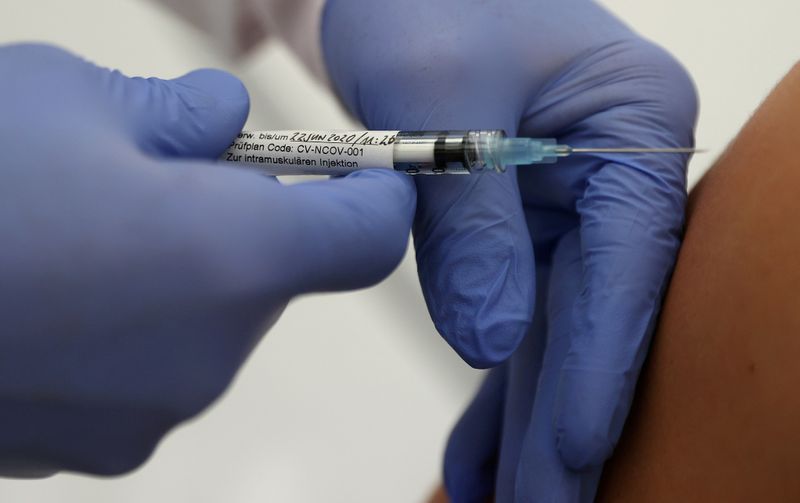By Alistair Smout
LONDON (Reuters) - A second-generation COVID-19 vaccine developed by CureVac and GlaxoSmithKline, designed to protect against coronavirus variants, produced a high level of immune response in a trial in rats, the companies said on Thursday.
CureVac in February said it would team up with GlaxoSmithKline on a COVID-19 vaccine aimed at targeting several variants with one shot.
The shot uses messenger RNA technology, similar to successful vaccines made by Pfizer-BioNTech and Moderna, and clinical trials of the shot in humans are expected to start in the third quarter of this year.
The mRNA "backbone" of the shot differs from CureVac's first COVID-19 vaccine candidate, and it is designed to work well at lower doses.
Rats immunised with the shot, called CV2CoV, showed quick, strong immune responses, the companies said, and blood serum "showed significant cross-neutralization against variants first discovered in Denmark (B.1.1.298), the UK (B.1.1.7) and South Africa (B.1.351)."
"To successfully fight the COVID-19 pandemic in the long term, we will need different vaccines and we need to be able to respond effectively to emerging variants," GSK Global Vaccines President Roger Connor said.
"We are pleased with these pre-clinical results as they show the potential of the next generation mRNA technology we are developing together with CureVac."
Although human trials are yet to start, these results mark a boost for GSK, the world's largest vaccine maker by sales.
GSK's collaboration with CureVac is a fresh attempt to play a major role in fighting the pandemic after a COVID-19 shot with Sanofi (PA:SASY) ran into delays and a collaboration with China's Clover Biopharmaceuticals was ended.
GSK, which acquired a 10% stake in CureVac last year, will also support the production of up to 100 million doses of CureVac's first-generation COVID-19 vaccine candidate.

CureVac's first generation COVID-19 vaccine is already in late-stage clinical trials.